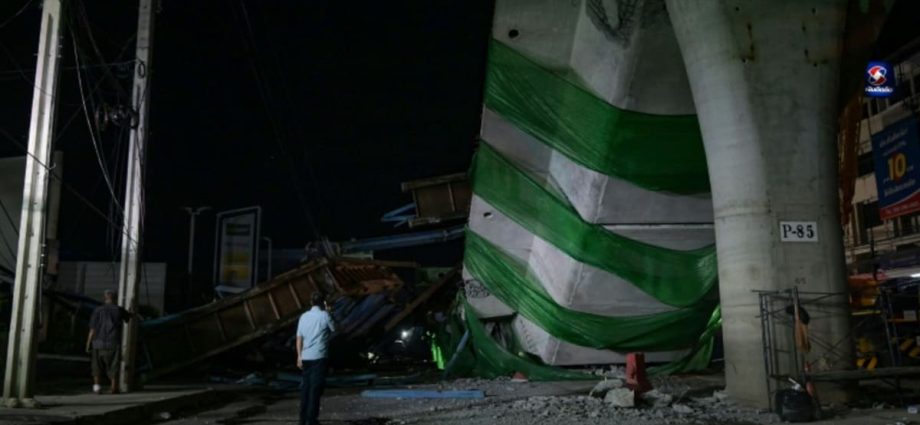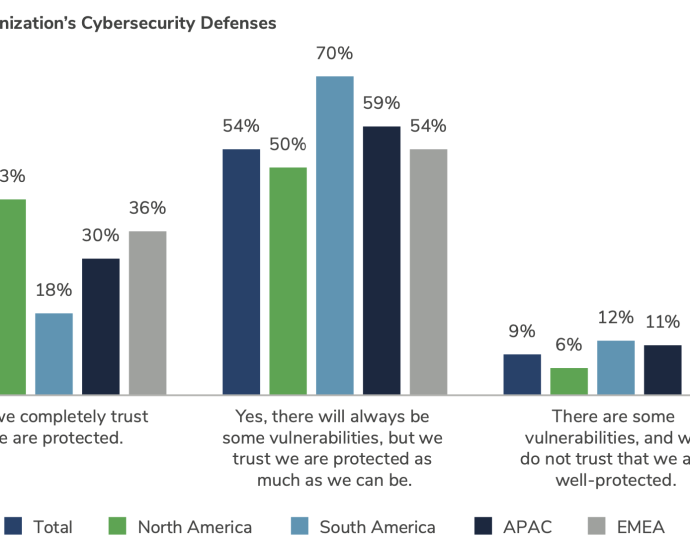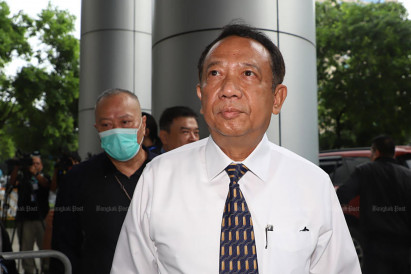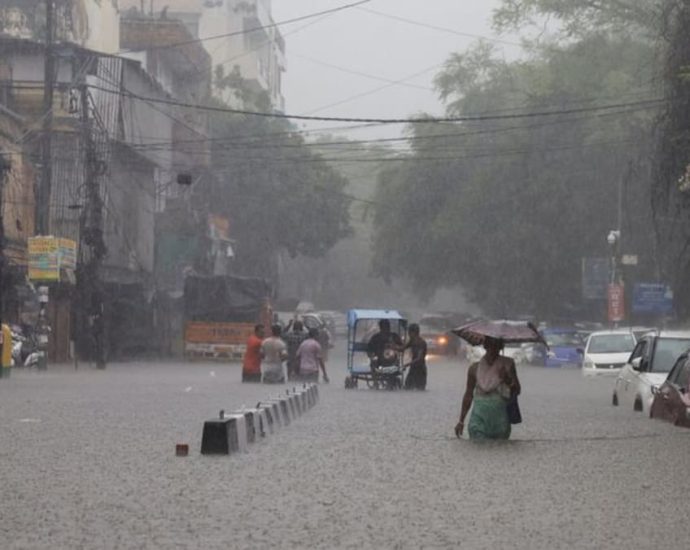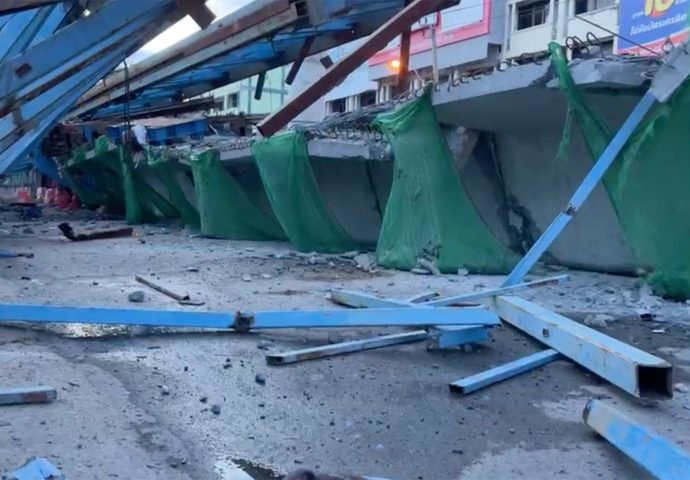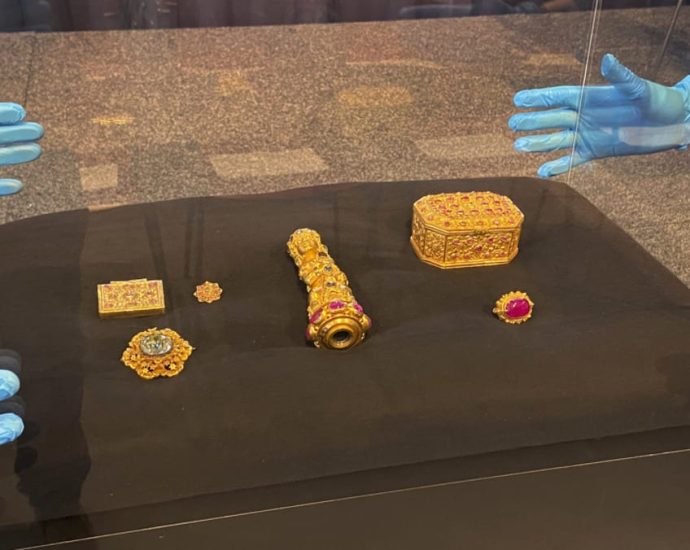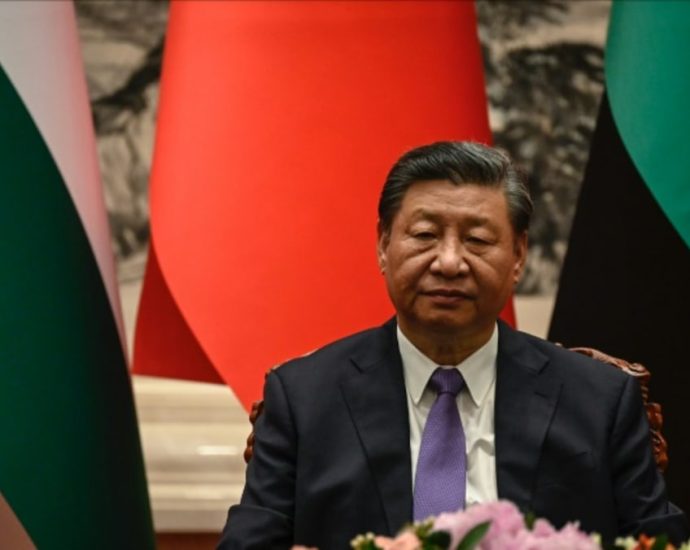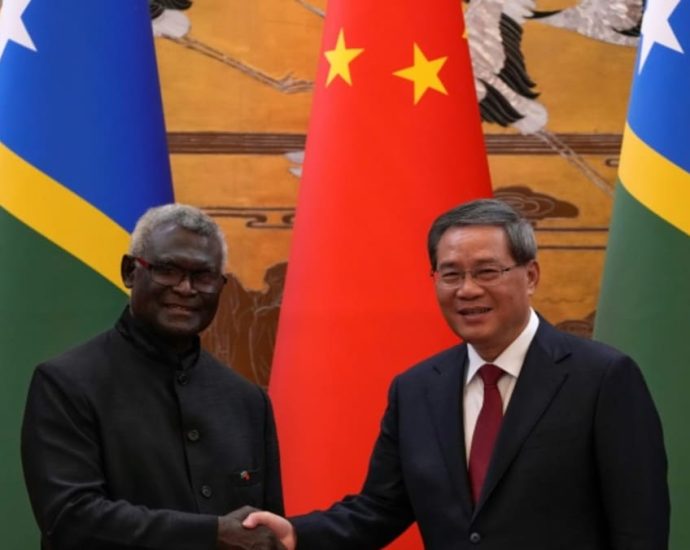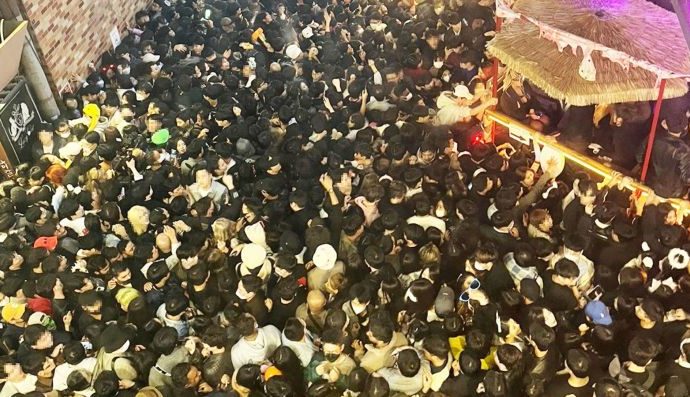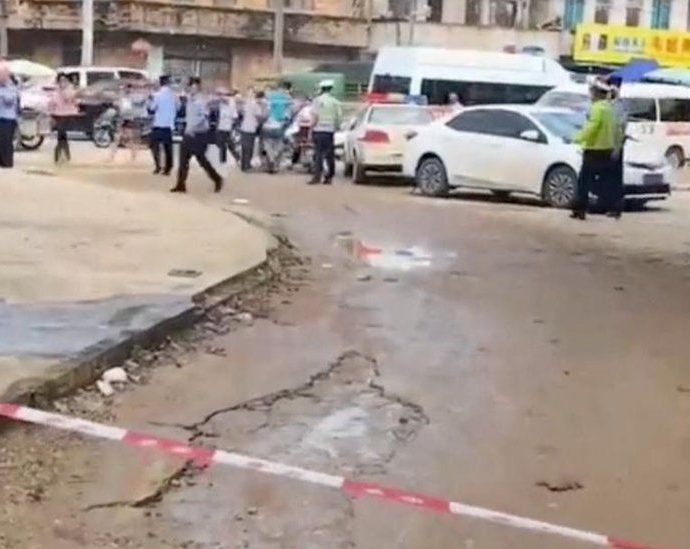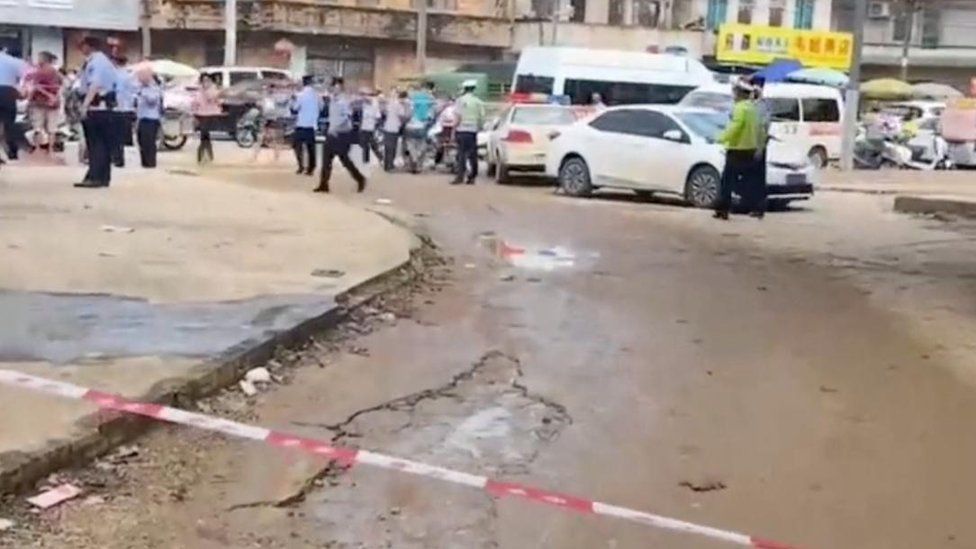At least one dead after under-construction Bangkok highway collapses
BANGKOK: At least one person has died after a huge construction girder over a busy road collapsed in the Thai capital Bangkok, police said Monday (Jul 10), with videos of the terrifying incident rapidly shared online. The massive metal girder on the Lat Krabang Tollway construction project to the eastContinue Reading
Kroll: Lack of communication weakens cyber resilience, say 52% of Singapore’s senior security decision makers
95% of security decision-makers lack senior leadership trust in protecting firms
Only 20% of security professionals with cyber-mature security ops have cyber insurance
Kroll, the leading independent provider of global risk and financial advisory solutions, announced the release of its report State of Cyber Defense 2023: The False-Positive of Trust.
In a statement the…Continue Reading
Top court jails ex-DSI chief Tarit for 2 years

The Supreme Court on Monday found former Department of Special Investigation (DSI) chief Tarit Pengdit guilty of malfeasance and sentenced him to two years in prison.
The lawsuit was filed by former prime minister Abhisit Vejjajiva and former deputy prime minister Suthep Thaugsuban who accused Mr Tarit of unfairly pursuing murder charges against them for their role in handling the 2010 political violence.
Mr Abhisit was the prime minster while Mr Suthep was in charge of the now-defunct emergency resolution centre tasked with handling anti-government red-shirt protests in 2010.
The Criminal Court had dismissed the malfeasance case against Mr Tarit, but the Appeal Court then reversed the lower court’s ruling, sentencing Mr Tarit to two years in prison.
In its ruling, the Supreme Court found that Mr Tarit was aware he was not authorised to investigate Mr Abhisit and Mr Suthep because the case against the pair, who were political office holders, fell under the jurisdiction of the National Anti Corruption Commission (NACC). Mr Tarit, however, led the DSI investigators to pursue the charges despite this.
The court also said that there were grounds to believe the criminal charges were politically motivated and agreed with the Appeal Court’s guilty ruling and sentenced Mr Tarit to two years in prison. The court dismissed the case against three other defendants.
Mr Tarit was escorted by officials to Bangkok Remand Prison.
Ahead of Monday’s scheduled ruling, Mr Tarit submitted fresh petitions asking to withdraw his plea of guilty and enter a not-guilty plea and challenged the judges who considered the appeal. He also asked for another postponement of the ruling reading.
Last week he also asked the Supreme Court to seek a Constitutional Court ruling on whether Sections 157 and 200 of the Criminal Code, which deal with malfeasance, were against the charter in what was seen as a last-minute attempt to delay the ruling on his case. He had successfully sought a postponement of the ruling hearing nine times.
At least 29 killed in India monsoon floods: Officials
NEW DELHI: Days of intense monsoon rains across northern India have left at least 29 people dead, rendering many areas inaccessible with bridges smashed and roads blocked, officials said on Monday (Jul 10). Television footage showed flash floods and landslides triggered by torrential rain, washing away vehicles, demolishing buildings andContinue Reading
2 killed, 10 hurt as elevated road collapses in Bangkok

Two people died and about ten others were injured when an elevated road section under construction collapsed on Luang Phaeng Road in Bangkok’s Lat Krabang district on Monday evening.
An elevated road segment across Wat Polmanee intersection plunged onto the road below at about 6pm.
The 500-metre-long segment is a part of the 2.2-kilometre-long Onnut-Lat Krabang elevated road project ordered by the Bangkok Metropolitan Administration.
The collapse site stretched from a Lotus’s Lat Krabang branch to Jorakay Noi police station.
An initial investigation found that a crane that was lifting the four-lane concrete road segment overturned, leaving the section to hurtle down to the ground.
The segment crushed vehicles on the road below, while several steel structures also hit roadside commercial buildings.
Two victims were killed instantly inside their vehicle.
The section of Luang Phaeng Road was closed to traffic, while the accident also caused a blackout in the locality.

A vehicle was crushed under the elevated road segment. (Photo: Ruamkatanyu Foundation)
Indonesia welcomes return of jewels, temple carvings as important step in global restitution effort
Indonesia got back more than the trove of glittering jewels and ancient carvings from a temple in Java, said Farid. “We consider these objects as our missing items in our historical narrative and of course they play different roles symbolically, culturally,” he said. Their return means Indonesia can “reintegrate themContinue Reading
Xi says Russia and China should ‘lead global governance reform’
BEIJING: China and Russia need to “lead the correct direction of global governance reform”, according to Chinese President Xi Jinping, who hailed the two countries’ partnership at a meeting with a top Russian politician in Beijing on Monday (Jul 10), state media reported. Beijing and Moscow have ramped up economicContinue Reading
Solomon Islands leader visits Beijing, highlighting US-China rivalry in South Pacific
BEIJING: Leaders of the Solomon Islands and China on Monday (Jul 10) promised to expand relations that have fuelled unease in Washington and Australia about Beijing’s influence in the South Pacific. Prime Minister Manasseh Sogavare met Chinese leader Xi Jinping and Chinese Premier Li Qiang, with Sogavare and Li presidingContinue Reading
Why S Koreaâs Yoon just isnât popular
On May 10, 2022, Yoon Suk-yeol was inaugurated as South Korea’s president. Yoon promised a presidency characterized by “freedom“, “fairness and common sense,” and a “value-based alliance” with the United States. But one year later, Yoon’s government faces a politically divided South Korea.
Yoon’s approval rating has declined from the low 50s since his inauguration and has fluctuated between the high 20s and low 40s. While Yoon’s domestic approval improved after diplomatic visits to the United States and the G7 Summit in Japan, it has not returned to pre-inaugural levels.
Yoon has contentious relations with the opposition Democratic Party, which controls South Korea’s National Assembly. The partisan conflict has reached new heights under Yoon.
For the past year, the government and the opposition party’s leadership have not held a formal meeting. The Democratic Party has condemned Yoon’s government for approving investigations into corruption allegations surrounding the Party’s leader Lee Jae-myung as politically motivated.
In retaliation, the opposition party has advocated for investigations into First Lady Kim Keon-hee.
Yoon’s political agenda has stalled under the partisan gridlock. The proposed pension, labor and education reforms, such as greater transparency of labor unions’ auditing, flexibility in employees’ work hours, and the abolition of the direct election of the education superintendent, have stymied.
Yoon has also vetoed the Grain Management Act and Nursing Act passed by the National Assembly. With few substantive legislative achievements, even citizens supportive of Yoon’s policies have become skeptical about their successful implementation.
Yoon has also struggled to expand domestic political support because of the fractures and controversies within the government. Traditional (often older) conservative voters and more ideologically heterogeneous (often younger male) voters make up Yoon’s support base. But support for Yoon’s government among younger voters has declined.
Young voters have criticized Yoon’s government for replicating what they perceive as the cliquish governance of former president Moon Jae-in’s government. The President’s Office has been criticized for marginalizing prominent figures within the ruling People’s Power Party, including Yoo Seong-min, Lee Jun-seok and Ahn Cheol-soo, who formed a unity ticket with Yoon in the presidential election.
Controversial remarks and conduct by government members have contributed to public perceptions that Yoon’s presidency has fallen short of upholding the promise of “fairness and common sense.”
Yoon’s government has struggled to communicate its policies effectively to the broader public on several contentious political issues. After the crowd crush incident at Itaewon, Yoon’s government rejected demands for the resignation of the Minister of Interior and Safety.

But the public perceived the decision as an attempt to avoid political responsibility. The government’s proposal to implement flexible labor hours was also met with public backlash due to widespread concerns about the extension of weekly work hours for employees.
Yoon’s foreign policy has also heightened the domestic political divide. Yoon’s supporters have approved his deepening of South Korea’s strategic partnerships with the United States and Japan and more assertive stances against North Korea and China.
Critics, though, say that Yoon is escalating geopolitical tensions and sacrificing South Korea’s interests to Japan and the United States. Despite their policy merits, Yoon’s government has been perceived as making contentious policy decisions without sufficiently consulting domestic critics.
South Korea’s next National Assembly election is in April 2024. If the government aspires to a legislative mandate to enact its agenda, Yoon’s second year in office must be more successful than his first in internal governance and public communication.
Yoon’s government must display discipline in managing a more cohesive and inclusive political coalition. Government figures and officials whose behavior and rhetoric undercut Yoon’s promise to uphold ‘fairness and common sense’ should be censured.
Yoon’s government should also incorporate policymakers with more diverse backgrounds, including those outside the president’s inner circle and even his critics, reaffirming Yoon’s own campaign promise of a “big tent” government.
The government should honor its promise to prioritize “interaction” with citizens. Yoon relocated the presidential office from the Blue House to the government complex in Yongsan, symbolizing his commitment to political accessibility.
But Yoon’s daily informal press interviews were soon suspended and the President’s Office has received criticism for limiting press interviews. Yoon should resume outgoing interactions with the press and citizens.
There is some skepticism about whether open communication could persuade the public in today’s polarized political environment. But a proactive display of political dialogue and articulation of policies, even if such outreach does not always persuade critics, leaves a positive public impression on Yoon’s commitment to overcome the constraints of a divided government.
Yoon has shown improvements in his communication overseas and he should also improve his communication with domestic constituents, starting with resuming the official press conference for the first time since August 2022.

Yoon’s government will likely face continued partisan gridlock in its second year. The government must respond to the challenge with a renewed commitment to improving internal governance and public communication to be successful.
The government’s actions will determine whether constituents will endorse Yoon’s presidency with a stronger political mandate in the next National Assembly election.
If Yoon succeeds, his presidency might experience a political turnaround similar to former president Roo Moo-hyun’s government. In 2004, Roh’s government overcame low approval ratings and the South Korean legislature’s opposition to his leadership — even impeachment — in its first year to win the subsequent National Assembly election.
If Yoon fails, though, his presidency might become the first not to have a legislative majority throughout its five-year term.
Jong Eun Lee is Adjunct Faculty at the School of International Service, American University.
This article was originally published by East Asia Forum and is republished under a Creative Commons license.
China kindergarten stabbing: What’s behind spate of attacks?
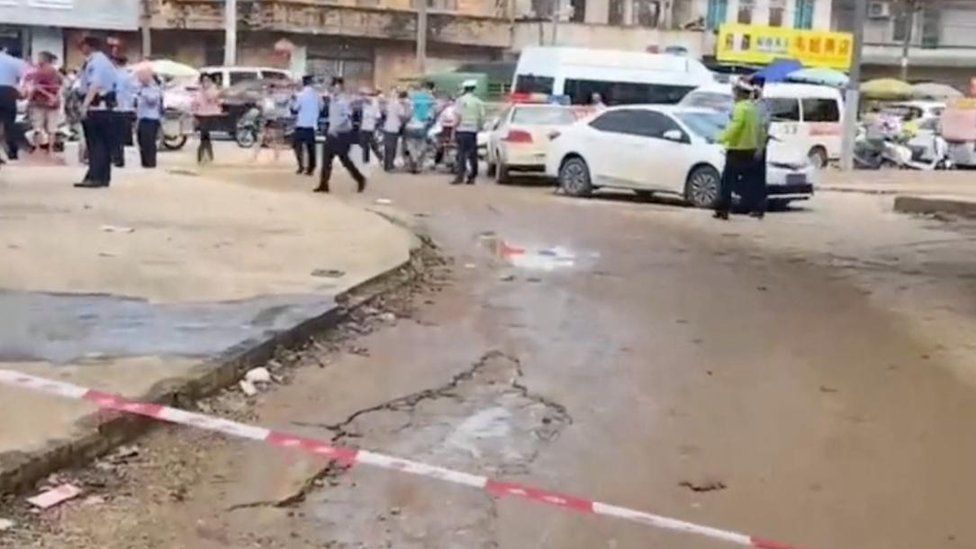 Reuters
ReutersWe still know little about what might have caused a man to enter a kindergarten in southern China and stab six people to death.
There are rumours swirling that it was revenge – that one of the dead adults had previously hit the attacker’s child with his or her car. But that does not explain why six died, including three children and a teacher.
These sorts of crimes can feel senseless, and yet also depressingly common.
Go back to the 1990s and things like this were virtually unheard of in China. It’s not that terrible things didn’t happen to children. They did.
There was the horrific incident in March 2001 when a school in the southern province of Jiangxi exploded, killing 41 children. An investigation found the school was doubling as a fireworks factory and the school children as cheap labour.
It was a tragedy that rocked China. There was much soul-searching about the exploitation of children and callous disregard for their safety. But their deaths were an accident.
Then, starting from around 2010, something began to change. That year, there was a sudden spate of knife attacks in which 17 children were killed.
This was something completely different. The children had been deliberately targeted to cause maximum pain and outrage.
China’s then Premier, Wen Jiabao, visited the scene of one of the attacks and immediately called for more security at schools. But he also said the underlying “social tensions” that led to such crimes must be addressed.
It was an interesting use of words. It suggests that these apparently senseless crimes do have a logic to them.
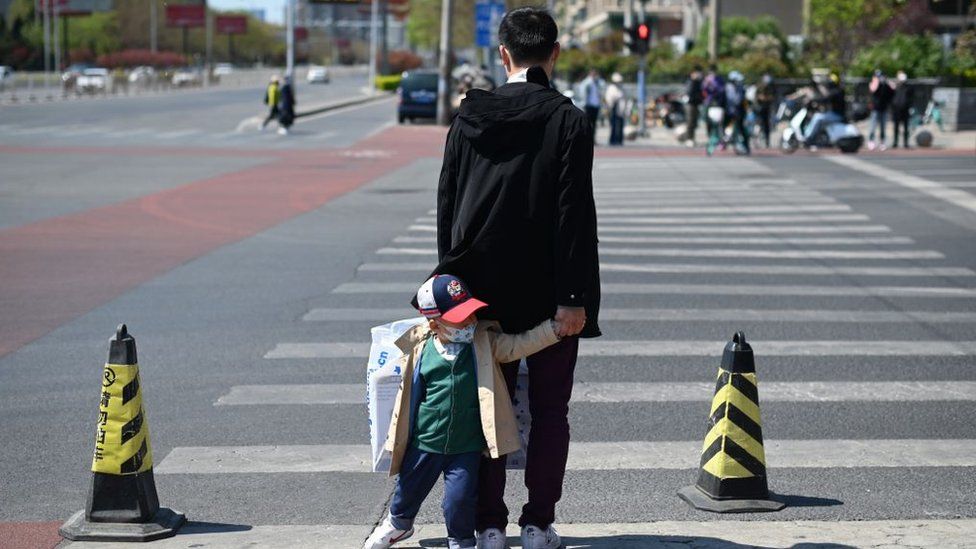
Since then, China has witnessed a significant increase in such attacks, almost always by men, almost always designed to cause maximum outrage.
In 2018, a man walked in to a packed school room in south-west China’s Yunnan province and began spraying the children with corrosive chemicals. Thankfully, none of them died. But 50 were sent to hospital, some with serious injuries.
What could cause someone to buy and mix the chemicals, then carefully plan and carry out such an attack?
It is not a phenomenon unique to China.
In 2019 in the Japanese city of Kyoto, a disgruntled man in his 40s sprayed gasoline on to the entrance of an animation studio and set fire to it. In the ensuing inferno, 36 young animators died, most of them women. The man told police he wanted revenge against the studio for stealing his ideas.
Experts say such men, and they are almost always men, fit a profile.
They have festering anger and resentment towards the society they live in, but do not feel part of.
By carrying out a sensational and violent crime, they bring notoriety to themselves, while inflicting pain and suffering on the society they hate.
But China may have some additional factors that have driven the recent rise in such crimes.
In the last two decades, China has gone through an extraordinary social and economic transition, from centrally planned socialist state to a hyper-competitive free-market economy, where some have become very wealthy and others have been left out of the bonanza.
Chinese people now joke that if you want a girlfriend, you need to have a nice car, and if you want a wife, you first need an apartment.
But this isn’t really a joke.
Men with low social status, who earn low wages or are unemployed, have little prospect of finding a mate. This has been further exacerbated by the Covid pandemic, during which millions of Chinese spent months locked in their apartments, and a youth unemployment rate that hovers around 20%.
China now has a term for mass knife attacks and mass outrages. They are called “social revenge”. Arguably, the conditions that led to the first social revenge attacks over a decade ago have only got worse.

